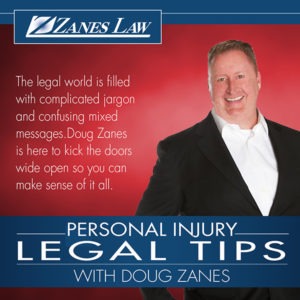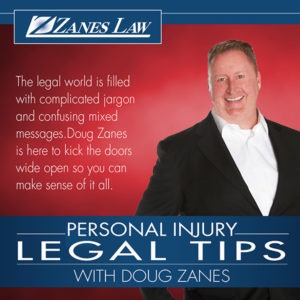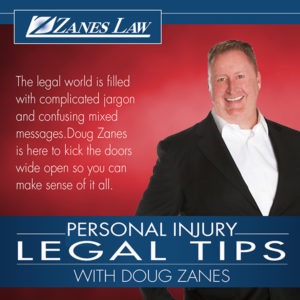![]() Contact Us (866) 499-8989
Contact Us (866) 499-8989
Can You Film Police Officers in Arizona?
- Why Arizona Attempted to Ban the Filming of Police Officers
- The Grounds Upon Which the Law Was Blocked
- Likely Abuses that Would Occur Under the New Law
- Is the Law Banning the Filming of Police Officers Dead?
- Loopholes in Current Laws Allowing Police Officers to Block People from Filming Them
- The Dangers of Bans on Recording Police Officers
- Home
- FAQs
- Personal Injury
- Can You Film Police Officers in Arizona?
In July 2022, the governor of Arizona signed into law a measure that made it illegal to record video within eight feet of anywhere law enforcement activity is being carried out. However, two months later, a federal judge put a temporary block on this law on the grounds that it violated the First Amendment.
Since neither the state legislature nor any other party came forward to defend the new law, the judge’s ruling held. While many states have passed various laws to curb interference with police officers performing their duty, the Arizona law was the first legislation passed that criminalized the filming of police officers.
Why Arizona Attempted to Ban the Filming of Police Officers
The reasons given for the creation of the law banning the filming of police officers may not be in line with the reality of the reasoning behind the legislation. While lawmakers claimed that the law was intended to prevent interference with police officers performing their duty, opponents believe the true intent was to limit the instances of video footage showing police misconduct.
With the rise of cell phone cameras over the past several years, there has been a corresponding increase in the number of videos showing police misconduct and contradicting testimony given by police officers that they were acting within their duty. These videos have become an embarrassment for law enforcement and increased distrust of police officers.
For a free legal consultation, call (866) 499-8989
The Grounds Upon Which the Law Was Blocked
Media organizations and the ACLU filed the lawsuit to have the law overturned, and after a review of the new law, it was blocked by a federal judge on the grounds that it was in violation of the First Amendment.
In his ruling, U.S. District Judge John J. Tuchi agreed with those in opposition to the law that the First Amendment protects the rights of the public and press to record police.
The judge made note of the fact that Arizona already has laws that prohibit interfering with police officers carrying out their duty, which was the express intent of the law by those who created the legislation. In his ruling, he stated that creating a separate law specifically targeting those recording police officers is an illegal content-based restriction.
Likely Abuses that Would Occur Under the New Law
While the law specified that the public was only barred from filming police officers within eight feet of the scene, the law’s wording left plenty of room for officers to arrest people beyond this stated boundary. An officer could simply walk towards a person filming from a further distance and then, once they were within eight feet, arrest them for a violation.
Furthermore, even if the person filming the officer was beyond the eight-foot mark, an officer could make the argument that they believed the supposed offender to have been within the eight-foot boundary. Because of the tendency of the courts to accept the word of a law enforcement officer, these abuses would likely go unchecked.
Because of the high potential that there would be for an arrest even if respecting the letter of the new law, many people would be afraid to film police even from a distance. As a result, many of the acts of police misconduct that have become more widely known in recent years would once again be hidden away, leaving corrupt officers to continue to abuse their power.
Click to contact our personal injury lawyers today
Is the Law Banning the Filming of Police Officers Dead?
While the law is dead in its current form, there will likely be attempts to get a new law on the books that restricts the right of the public and press to record police officers in their duty.
The sponsor of the bill, Representative John Kavanagh, has already stated that he plans to review the ruling of Judge Tuchi to create a new law that he hopes will stand up to judicial scrutiny.
Unfortunately, many lawmakers would rather create laws that ban the filming of police misconduct rather than address the true problem of the existence of misconduct in the first place.
Complete a Free Case Evaluation form now
Loopholes in Current Laws Allowing Police Officers to Block People from Filming Them
While it is once again legal for the public in Arizona to film police officers, there are loopholes that can still provide police with the means of stopping people from recording them. While officers may not be able to make people stop filming directly, they can order a crowd to disperse for other reasons, such as for public safety and order.
The Dangers of Bans on Recording Police Officers
If laws are enacted to restrict the right of the public to record law enforcement officers, then while the reported incidents of police misconduct will likely decrease, actual cases of police abusing their power will almost certainly increase. If someone does end up recording a police officer acting illegally, they may not come forward with the video over fear of arrest.
While the courts have a tendency to take the word of a police officer over that of a civilian, video often speaks louder than words. The right to record police officers on the job can help to hold these officers accountable for their actions. Faith in the police will not increase through the suppression of video evidence. Instead, it can only be done through reform.
Many police officers carry out their duty with honor. Unfortunately, these good cops may be faced with distrust because of recordings of the bad apples within the force. However, the way to protect police officers who faithfully serve is not by covering up for corrupt officers but instead to hold these officers accountable and rebuild public trust.
Call or text (866) 499-8989 or complete a
Free Case Evaluation form
 Injury Lawyer Doug Zanes Interviewed For “Business Leader Spotlight”
Injury Lawyer Doug Zanes Interviewed For “Business Leader Spotlight”
Doug was recently interviewed by Randy Van Ittersum on the "Business Leader Spotlight Show." It was a great experience and gave him the opportunity to share important topics that are super
 Need Personal Injury Legal Advice? Listen to Our NEW Podcast by Doug Zanes!
Need Personal Injury Legal Advice? Listen to Our NEW Podcast by Doug Zanes!
We are excited to announce that we have officially launched the Zanes Law Personal Injury Legal Tips podcast, featuring advice from Zanes Law owner and responsible attorney Doug Zanes. When
 Should you hire an injury attorney? 5 Things You Need to Know
Should you hire an injury attorney? 5 Things You Need to Know
We know that when you’ve been injured in an accident, it can be difficult to take legal action quickly. After an accident, you might just want everything to be over and done with, so you
 Can I Settle An Injury Claim On My Own?
Can I Settle An Injury Claim On My Own?
Nobody expects to be in an accident—let alone get injured in an accident—but when it does happen, you may be asking yourself a lot of questions, including, “Can I settle an injury claim on my
Receive a Free, No-Obligation, Case Evaluation Now



